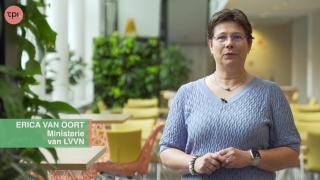Developing a computational model for human neural tube closure
Animal-free methods for human chemical safety assessment are promising tools for the reduction of animal testing. However, these methods only measure a small aspect of biology compared to an in vivo test. The reductionist nature of these methods thus limits their individual application in the regulatory arena of chemical risk assessment. Ontologies can be used to describe human biology, and delineate the basis of adverse outcome pathway networks that describe how chemical exposures may lead to adverse health effects. This pathway description can then help to select animal-free in vitro and in silico methods, comprehensively covering the network. The comprehensiveness of this approach, firmly rooted in human biology, is expected to facilitate regulatory acceptance of animal-free methods. As an example, this video zooms in on the development of a computational model for neural tube development, an aspect of human development that is especially vulnerable to chemical disruption.
This research is part of the ONTOX project.
For more information on the concept of the Virtual Human, click here.
New

Helpathon #12 – Can you help Erica?

The NAM Navigator: A unique repository for information on the validation and acceptance of New Approach Methodologies
